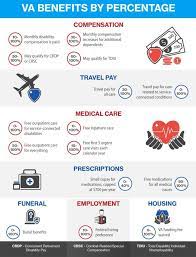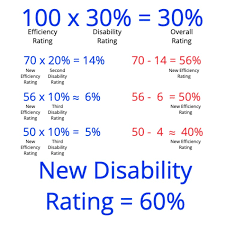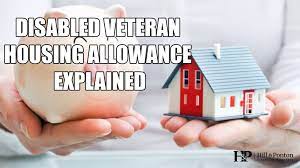Total and Permanent Disability VA Benefits: A Lifeline for Disabled Veterans
For veterans who have suffered severe disabilities as a result of their service, the United States Department of Veterans Affairs (VA) offers Total and Permanent Disability (TPD) benefits. These benefits are designed to provide financial assistance and support to veterans who are unable to engage in substantial gainful employment due to their disabilities.
TPD benefits serve as a lifeline for disabled veterans, ensuring that they receive the necessary resources to maintain their quality of life. Here’s what you need to know about these crucial VA benefits:
Eligibility Criteria
To qualify for TPD benefits, veterans must meet certain eligibility criteria set by the VA. The primary requirement is that the veteran must have a service-connected disability rated at 100% by the VA. This disability rating indicates that the veteran’s disability is total and permanent, leaving them unable to work.
In addition to meeting the disability rating criteria, veterans must also provide medical evidence supporting their claim of total and permanent disability. This evidence may include medical records, doctor’s statements, and other relevant documentation.
Financial Support
Once approved for TPD benefits, disabled veterans receive financial support from the VA. The amount of compensation varies based on individual circumstances such as marital status, number of dependents, and additional factors identified during the claims process.
The financial assistance provided through TPD benefits can help cover essential living expenses such as housing costs, medical bills, transportation needs, and daily living expenses. This support ensures that disabled veterans can focus on their well-being without financial strain.
Additional Benefits
Beyond financial assistance, TPD beneficiaries may also be eligible for additional benefits from the VA. These include healthcare benefits, vocational rehabilitation services, education assistance, and access to VA-sponsored housing programs.
Healthcare benefits can help cover the costs of medical treatments, medications, and specialized care needed for the disability. Vocational rehabilitation services aim to assist disabled veterans in developing new skills or finding suitable employment opportunities. Education assistance enables veterans to pursue higher education or vocational training to enhance their future prospects.
Applying for TPD Benefits
The process of applying for TPD benefits begins with completing the necessary paperwork provided by the VA. It is crucial to gather all relevant medical evidence and documentation supporting the claim of total and permanent disability. Working with a Veterans Service Officer (VSO) or an accredited representative can be immensely helpful during this process.
Once the application is submitted, it undergoes a review by the VA’s Rating Authorities. The decision-making process may take time due to the complexity of evaluating disabilities and determining eligibility. However, disabled veterans are encouraged to remain patient throughout this period.
Conclusion
Total and Permanent Disability (TPD) benefits offered by the VA are a vital support system for disabled veterans who are unable to work due to service-connected disabilities. These benefits provide financial assistance and access to additional resources that ensure a decent quality of life for those who have sacrificed so much for our country.
If you or someone you know is a disabled veteran, it is essential to explore TPD benefits and understand how they can provide much-needed support. The VA is committed to assisting disabled veterans on their journey towards a better future.
7 Key Advantages of Total and Permanent Disability VA Benefits for Disabled Veterans
- Financial assistance for disabled veterans who are unable to work
- Helps cover essential living expenses such as housing and medical bills
- Access to healthcare benefits for necessary medical treatments
- Opportunity for vocational rehabilitation services to develop new skills or find suitable employment
- Education assistance for pursuing higher education or vocational training
- Access to VA-sponsored housing programs for stable and affordable housing options
- Provides a lifeline and support system for disabled veterans in need
Seven Drawbacks of VA Total and Permanent Disability Benefits: Financial, Bureaucratic, and Coverage Limitations
- Limited financial support
- Lengthy application process
- Eligibility challenges
- Dependency on VA decisions
- Lack of flexibility
- Limited coverage of non-medical expenses
- Potential changes in benefit status
Financial assistance for disabled veterans who are unable to work
One significant advantage of Total and Permanent Disability (TPD) VA benefits is the provision of financial assistance for disabled veterans who are unable to work. These benefits serve as a crucial lifeline, ensuring that disabled veterans receive the necessary resources to maintain their quality of life. By providing financial support to cover essential living expenses such as housing costs, medical bills, transportation needs, and daily living expenses, TPD benefits alleviate the financial strain that disabled veterans may face. This assistance allows them to focus on their well-being and rehabilitation without worrying about their financial stability, providing a sense of security and peace of mind during challenging times.
Helps cover essential living expenses such as housing and medical bills
One significant pro of Total and Permanent Disability (TPD) VA benefits is that they help cover essential living expenses, including housing and medical bills. For disabled veterans who are unable to work due to their service-connected disabilities, these benefits provide a crucial financial lifeline. By assisting with housing costs, TPD benefits ensure that disabled veterans have a stable and secure place to call home. Additionally, covering medical bills allows veterans to receive the necessary healthcare services and treatments without the burden of excessive expenses. This pro of TPD benefits greatly contributes to improving the overall quality of life for disabled veterans and alleviating some of the financial stress they may face.
Access to healthcare benefits for necessary medical treatments
One significant pro of Total and Permanent Disability (TPD) VA benefits is the access it provides to healthcare benefits, ensuring disabled veterans have access to necessary medical treatments. These benefits can help cover the costs of medical treatments, medications, specialized care, and other healthcare services. By having access to these healthcare benefits, disabled veterans can receive the essential medical care they need to manage their disabilities and improve their overall well-being. This ensures that they can lead healthier lives and focus on their recovery without the burden of financial strain.
Opportunity for vocational rehabilitation services to develop new skills or find suitable employment
One significant advantage of Total and Permanent Disability (TPD) VA benefits is the opportunity it provides for vocational rehabilitation services. Disabled veterans who qualify for TPD benefits can access programs and resources aimed at developing new skills or finding suitable employment. These vocational rehabilitation services offer a pathway for disabled veterans to enhance their abilities, explore new career paths, and regain their independence. By equipping them with the necessary tools and support, TPD benefits empower disabled veterans to overcome challenges, reintegrate into the workforce, and pursue fulfilling employment opportunities that align with their abilities and interests.
Education assistance for pursuing higher education or vocational training
One significant pro of Total and Permanent Disability (TPD) VA benefits is the education assistance it provides for disabled veterans to pursue higher education or vocational training. This benefit opens up new opportunities for disabled veterans to enhance their skills, knowledge, and future prospects. Whether it’s obtaining a degree or gaining specialized vocational training, education assistance empowers disabled veterans to overcome their disabilities and build a successful career path. By investing in their education, TPD benefits enable disabled veterans to unlock their full potential and achieve personal and professional growth despite the challenges they face.
Access to VA-sponsored housing programs for stable and affordable housing options
One of the significant advantages of Total and Permanent Disability (TPD) VA benefits is the access it provides to VA-sponsored housing programs, offering disabled veterans stable and affordable housing options. These programs aim to ensure that disabled veterans have a safe and suitable place to live, free from the burden of excessive housing costs. By availing themselves of these housing programs, disabled veterans can find stability and peace of mind, knowing that their housing needs are taken care of. This benefit not only improves their quality of life but also allows them to focus on their overall well-being and rehabilitation without worrying about the challenges of finding affordable housing.
Provides a lifeline and support system for disabled veterans in need
Total and Permanent Disability (TPD) VA benefits provide a crucial lifeline and support system for disabled veterans in need. These benefits ensure that veterans who are unable to work due to their service-connected disabilities receive the financial assistance they require to maintain their quality of life. By offering this support, TPD benefits alleviate the financial burden on disabled veterans, allowing them to focus on their well-being and access necessary resources without added stress. This pro of TPD benefits underscores the commitment of the VA to stand by those who have served our country and ensure they receive the care and support they deserve.
Limited financial support
One of the drawbacks of total and permanent disability VA benefits is the limited financial support they provide. While these benefits offer financial assistance to disabled veterans, the compensation amount may not be sufficient to cover all expenses, particularly for veterans with complex medical needs or dependents. The costs associated with specialized medical treatments, ongoing care, and additional support for dependents can quickly add up, potentially leaving some disabled veterans struggling to meet their financial obligations. It is important for veterans in such situations to explore other available resources and support systems to ensure they receive the comprehensive assistance they need.
Lengthy application process
One con of Total and Permanent Disability (TPD) VA benefits is the lengthy application process. Applying for TPD benefits can be a time-consuming and bureaucratic process. The extensive paperwork and documentation required may cause delays in receiving the much-needed support. Veterans who are already dealing with disabilities may find the application process overwhelming and frustrating. The complex evaluation of disabilities and the need for thorough documentation can result in prolonged waiting periods, which can be challenging for disabled veterans who require immediate assistance. Streamlining the application process and reducing unnecessary bureaucracy would greatly benefit disabled veterans seeking TPD benefits.
Eligibility challenges
One significant challenge of Total and Permanent Disability (TPD) VA benefits is the strict eligibility criteria that veterans must meet, particularly obtaining a 100% service-connected disability rating. This requirement can pose difficulties for some veterans who may have severe disabilities but are not rated at the highest level. These individuals may still face significant limitations and struggle to maintain substantial gainful employment, yet they may not qualify for TPD benefits due to the specific rating criteria. This con highlights the need for a comprehensive evaluation system that considers the overall impact of disabilities on veterans’ ability to work and function in society.
Dependency on VA decisions
One potential drawback of Total and Permanent Disability (TPD) VA benefits is the dependency on the VA’s rating authorities to determine eligibility. Veterans have to rely on these authorities to assess their disability status, which can lead to potential delays, denials, or disagreements. This reliance on the VA’s decisions may cause frustration and uncertainty for disabled veterans who are in need of immediate financial assistance and support. It highlights the importance of ensuring a fair and efficient evaluation process to minimize any negative impact on veterans seeking TPD benefits.
Lack of flexibility
One con of Total and Permanent Disability (TPD) VA benefits is the lack of flexibility in terms of comprehensive support services. While TPD benefits primarily focus on providing financial assistance to disabled veterans, they may fall short in addressing individual needs. These benefits do not always offer specialized healthcare options or specific vocational training programs that could greatly benefit disabled veterans in their unique circumstances. The lack of flexibility in tailoring support services to individual needs can be a limitation for some veterans who may require more specialized assistance beyond financial aid.
Limited coverage of non-medical expenses
One con of Total and Permanent Disability (TPD) VA benefits is the limited coverage of non-medical expenses. While TPD benefits are crucial in assisting disabled veterans with essential living costs like housing and medical bills, they may fall short when it comes to covering other important aspects. Expenses such as transportation costs or modifications needed to accommodate disabilities may not be fully covered by TPD benefits. This limitation can pose challenges for disabled veterans who rely on these additional resources to maintain their independence and improve their quality of life.
Potential changes in benefit status
One potential con of Total and Permanent Disability (TPD) VA benefits is the periodic reevaluation conducted by the VA. While these reevaluations are necessary to ensure that benefits are appropriately allocated, they can pose a concern for veterans. If a veteran’s condition improves over time or if there are changes in regulations governing TPD eligibility requirements, there is a possibility that their benefit status could be affected, potentially resulting in a loss of benefits. This uncertainty can create anxiety and instability for veterans who rely on these benefits for their financial and medical needs. It is important for veterans to stay informed about any updates or changes in order to proactively address potential impacts on their benefit status.




